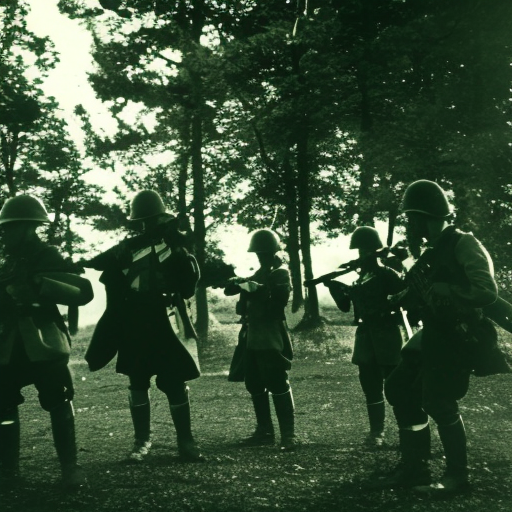Summary: First Matabele War
The First Matabele War was a conflict that took place in present-day Zimbabwe between the British South Africa Company (BSAC) and the Matabele people in 1893. The war was sparked by tensions between the Matabele and the BSAC, who sought to expand their control over the region. The conflict resulted in the defeat of the Matabele and the establishment of British control over the area.
Background
The Matabele people, led by their king Lobengula, inhabited the region known as Matabeleland in southern Africa. In the late 19th century, the British South Africa Company, under the leadership of Cecil Rhodes, sought to expand its influence and control over the region. The BSAC had already established control over Mashonaland, a neighboring territory, and now aimed to extend its reach into Matabeleland.
Causes
Tensions between the Matabele and the BSAC escalated due to a number of factors. The BSAC sought to exploit the region’s rich mineral resources, particularly gold, which threatened the Matabele’s control over their ancestral lands. Additionally, the BSAC’s encroachment on Matabeleland and their imposition of taxes on the local population further strained relations between the two groups.
Outbreak of War
In 1893, the BSAC sent a force of around 700 armed men, known as the British South Africa Police, into Matabeleland to enforce their authority. The Matabele initially resisted, launching attacks on the BSAC’s forces. However, the Matabele were no match for the well-armed and organized BSAC troops, who quickly gained the upper hand.
Course of the War
The war was characterized by a series of battles and skirmishes between the BSAC forces and the Matabele warriors. The Matabele employed guerrilla tactics, utilizing their knowledge of the terrain to launch surprise attacks on the BSAC troops. However, the BSAC’s superior firepower and military strategy allowed them to gradually gain control over the region.
Defeat of the Matabele
The turning point of the war came with the Battle of Shangani in December 1893. The BSAC forces, led by Major Allan Wilson, engaged in a fierce battle with the Matabele warriors. Despite being outnumbered, the BSAC troops fought bravely but were ultimately overwhelmed. Major Wilson and his men were killed, becoming martyrs for the British cause. However, their sacrifice rallied support for the BSAC, and reinforcements were sent to Matabeleland.
Aftermath
With the arrival of reinforcements, the BSAC launched a final assault on the Matabele stronghold at Bulawayo. The Matabele, facing defeat, were forced to surrender. King Lobengula fled, and the BSAC established control over Matabeleland. The war resulted in the loss of thousands of Matabele lives and the destruction of their way of life.
Legacy
The First Matabele War marked the beginning of British colonial rule in Zimbabwe. The BSAC’s victory paved the way for further British expansion and the eventual establishment of Rhodesia as a British colony. The war also had a lasting impact on the Matabele people, who faced displacement, loss of land, and the erosion of their cultural identity.
In conclusion, the First Matabele War was a conflict between the British South Africa Company and the Matabele people in 1893. The war was sparked by tensions over land and resources, and the BSAC’s desire to expand its control over the region. The conflict resulted in the defeat of the Matabele and the establishment of British colonial rule in Zimbabwe. The war had a profound impact on the Matabele people, leading to the loss of lives, displacement, and the erosion of their cultural identity.












